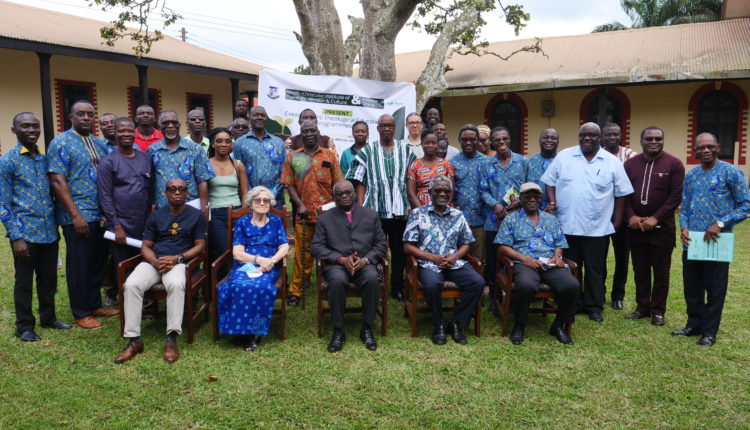A Rocha Ghana (ARG) in partnership with the Akrofi-Christaller Institute of Theology, Mission and Culture (ACI) has initiated a programme aimed at teaching and inspiring future clergy and lay church leaders to care for the natural environment.
The programme dubbed “Creation Care Theological Education Programme,” is targeted at providing support and creating awareness to enhance the knowledge of creation care studies and its practice in an African context.
At a time when the effects of ecological changes can be felt in almost every aspect of life, there is an urgent need to also get every faction of society actively involved in reducing the risks of ecological decline and ensuring that the environment is well protected and conserved for posterity.
ARG and ACI are therefore working together to help instil positive habits of caring for creation in faith-based organisations—specifically the church which is known to make up one of the largest social networks in the country.
With reference to the biblical mandate to care responsibly for creation, Christian educators and church pastors are in a unique position to influence their respective communities by developing and teaching values and practices that promote creation care.
Scale up creation care
Speaking at the launch of the programme held at Akropong in the Eastern Region, ARG’s National Director, Dr. Seth Appiah-Kubi, highlighted the need for Christians to be fully involved in the care for the environment as this forms the basis of Christianity.
According to him, God’s initial role given to man was, “tendering, sustaining and keeping the beautiful creation that He made.”
Dr. Appiah-Kubi was hopeful that the programme would demonstrate the need to create a sustainable environment by taking on practical interventions that would help save important ecosystems, ecological places and species and enable them to thrive just as God intended them to be.
Environment in a sorry state
Rector of the Akrofi-Christaller Institute, Rev. Prof. B. Y. Quarshie bemoaned the current state of Ghana’s environment and called for more commitment from the Christian fraternity to help curtail the destruction meted out on the environment.
Prof Quarshie believes many Ghanaians who claim to be Christians are the same the people involved in “galamsey” to wit illegal mining and other environmentally destructive activities and sees this as a blot on the Christian faith.
“Those of us who claim to appreciate what it means to be a new creation in Jesus Christ cannot run away from our responsibility towards creation. No religious person can be neutral in this. We cannot sit on the fence. If you have faith in Jesus Christ, it’s your responsibility to take care of the environment,” he said.
Prof. Quarshie said he was positive that the partnership would pursue the sustenance of God’s creation and educate the members on the right way to treat the environment, as he called on various religious institutions to come on board to save the world.
The programme launch also featured an inaugural symposium which gave an in-depth view on how to build creation care in the African Church with a focus on the Process, the role of the Pulpit—which includes the leadership of the church and the Pew—which has to do with the members of the church and their responsibilities in ensuring the environment is kept healthy for tomorrow.
ARG-ACI Creation Care Programme
According to partners on the Creation Care Theological Education Programme, this programme is expected to last as long as commitment from both partners remains unwavering.
Aside the implementation of certificate programmes on Christian eco-mission, the curriculum is expected to enhance creation care teaching and learning through seminars, workshops, and public lectures.
The programme has already seen some students awarded with scholarship opportunities for the Christian African Creation Care Studies.
Certificate courses under this programme are open to church leaders, pastors and seminarians while workshops, seminars and public lectures are opened to all interested parties.
BY Grace Ablewor Sogbey


Comments are closed.